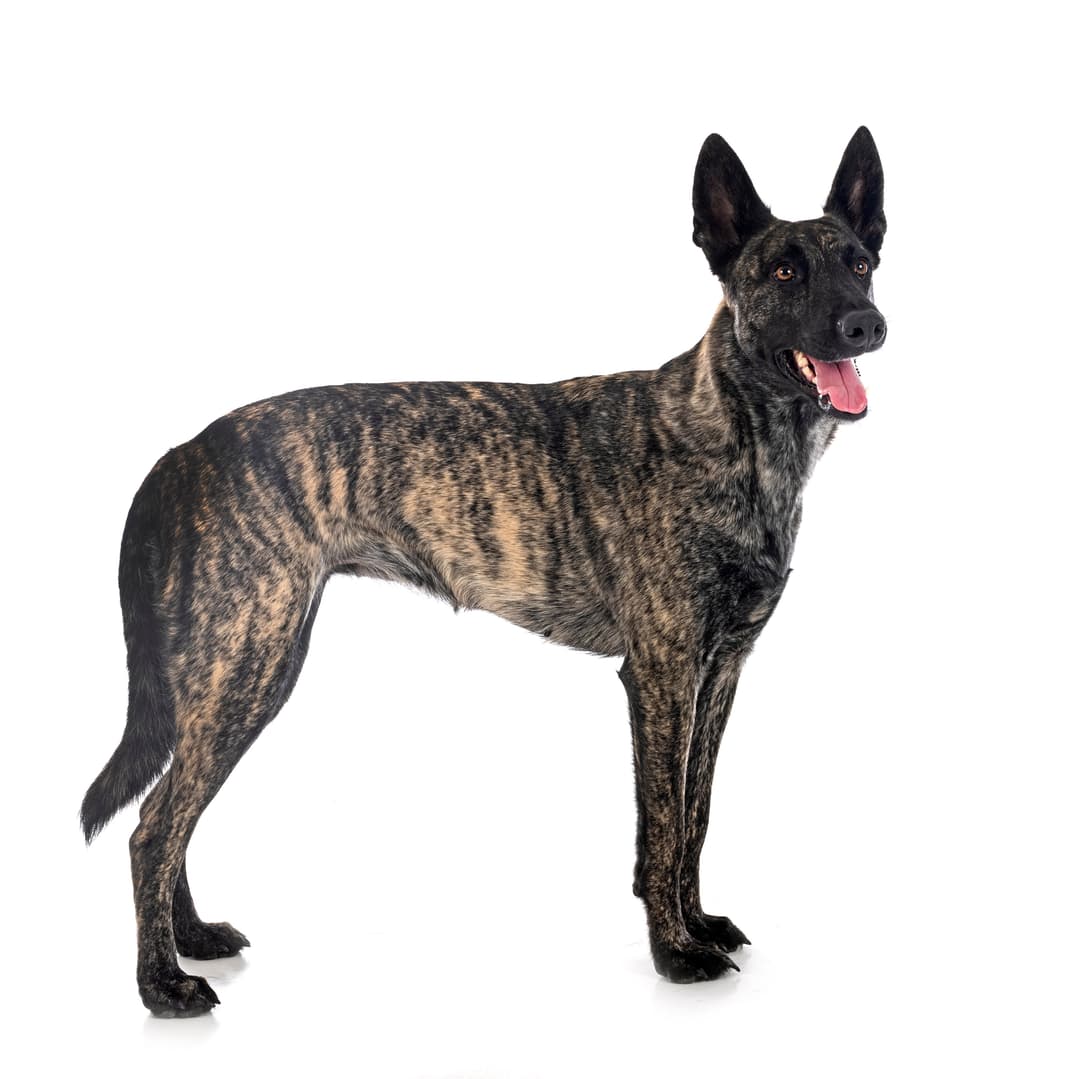Discover your dog's connection to this breed and 200+ others


Discover your dog's connection to this breed and 200+ others



The Dutch Shepherd, also known as Hollandse Herder, is an interesting breed that has its origins in the Netherlands. The breed is believed to have been in existence since the 19th century, bred by Dutch farmers and shepherds who needed a multi-purpose dog that could adapt to various tasks including herding, guarding livestock, and pulling carts. The breed's ancestry is largely unknown, although it's believed to share common roots with other shepherd breeds in Germany and Belgium. After the Industrial Revolution, the need for herding dogs declined, and the Dutch Shepherd nearly disappeared. However, enthusiasts of the breed rallied to revive it in the early 20th century. The breed has been refined over time to suit changing needs, and today, it's often employed in police, search and rescue, and as a service dog.
Dutch Shepherds can suffer from degenerative myelopathy and progressive rod-cone degeneration. Genetic testing for these and other conditions such as spongy degeneration with cerebellar ataxia (SDCA2), and von Willebrand Disease I can assist veterinarians with diagnosis and proactive care, as well as help breeders identify affected and carrier dogs.
Dutch Shepherds are known for their loyalty, intelligence, and versatility. They have a strong work ethic and can be trained for various tasks. Their personality can range from laid-back to quite active, depending on their individual nature and level of training and socialization. These dogs are typically good with children and other pets when properly socialized. However, like all dogs, they require appropriate training and a well-structured environment.
A canine genetic lineage is a group of individuals or entire breeds that descended from common ancestors predating modern breed formation. Often these lineages are associated with a ‘type’ of dog with a unique historical working role and associated behaviors (e.g., herding, scent hunting, etc.).
Herding dogs are known for their high intelligence, trainability, and strong work ethic. These breeds originated in areas where managing livestock was an important part of daily life and had large pastoral lands. These breeds were specifically developed to help farmers and shepherds move, manage, and protect herds of livestock. Breeds within the herding dog lineage are agile and are known to have a natural herding instinct, where they like to keep their animals together. They are loyal and attentive to their handlers and are eager to please and are also highly aware of their environment. Many breeds within this linage have gone on to work as rescue and police dogs.
Example breeds with ancestry from this lineage include Border Collie, Cardigan Welsh Corgi, and German Shepherd.
Dutch Shepherds can have three different types of coats: short hair, long hair, and rough hair, each with slightly different grooming needs.
Despite their versatility and exceptional working abilities, Dutch Shepherds are not as widely recognized as German Shepherds or Belgian Malinois.
Dutch Shepherds have a unique brindle coat color, which sets them apart from many other shepherd breeds.
The breed is known for its leaping ability. A well-conditioned Dutch Shepherd can leap great heights in a single bound, which is why they are often used in agility competitions.
Dutch Shepherds were often charged with taking sheep out to pasture every morning, and then bringing them back to the barn in the evenings on their own.
https://www.fci.be/Nomenclature/Standards/223g01-en.pdf
https://www.ukcdogs.com/dutch-shepherd https://www.akc.org/dog-breeds/dutch-shepherd/ https://vgl.ucdavis.edu/breed/dutch-shepherd-roughhaired
Recommended by top vets with decades of experience
21 breeds
64 genetic health markers
50 genetic trait markers
